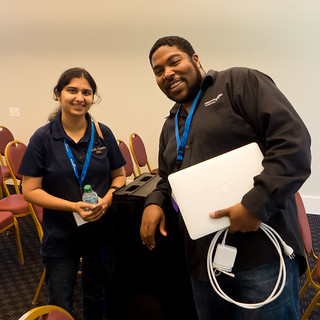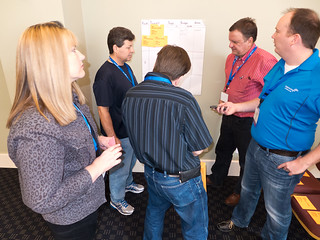
Manifesto for Agile Software Development starts with a very interesting notion that for better ways of developing software it is important to value
Individuals and interactions over processes and tools.
Seems simple enough: people should always be more important than tools, if the industry hopes to harness the benefits of individuals’ knowledge, creativity, and commitment.
However, Agile methodology is largely about process. SCRUM, a popular Agile framework, requires very tight adherence to its many processes and ceremonies. Other agile approaches are also about process – iterative process, light-weight process, but a process nevertheless. No Agile book recommends letting the individuals interact freely, with no structure or process to guide them.
The idea of valuing the individuals over the process means that a process is necessary – but the actual process used is continuously tailored to the individuals involved. The value of the process is determined by how well it serves the goal of successfully delivering value to the client, and the needs of the Agile team. Any measure intrinsic to the process itself is largely irrelevant.
Individuals and interactions emerge the process, just like the team emerges the product – bit by bit, feature by feature, continuously improving the understanding of what works, and what fits the particular project and the group.
Individuals and interactions emerge the process, just like the team emerges the product – bit by bit, feature by feature, continuously improving the understanding of what works, and what fits the particular project and the group.



